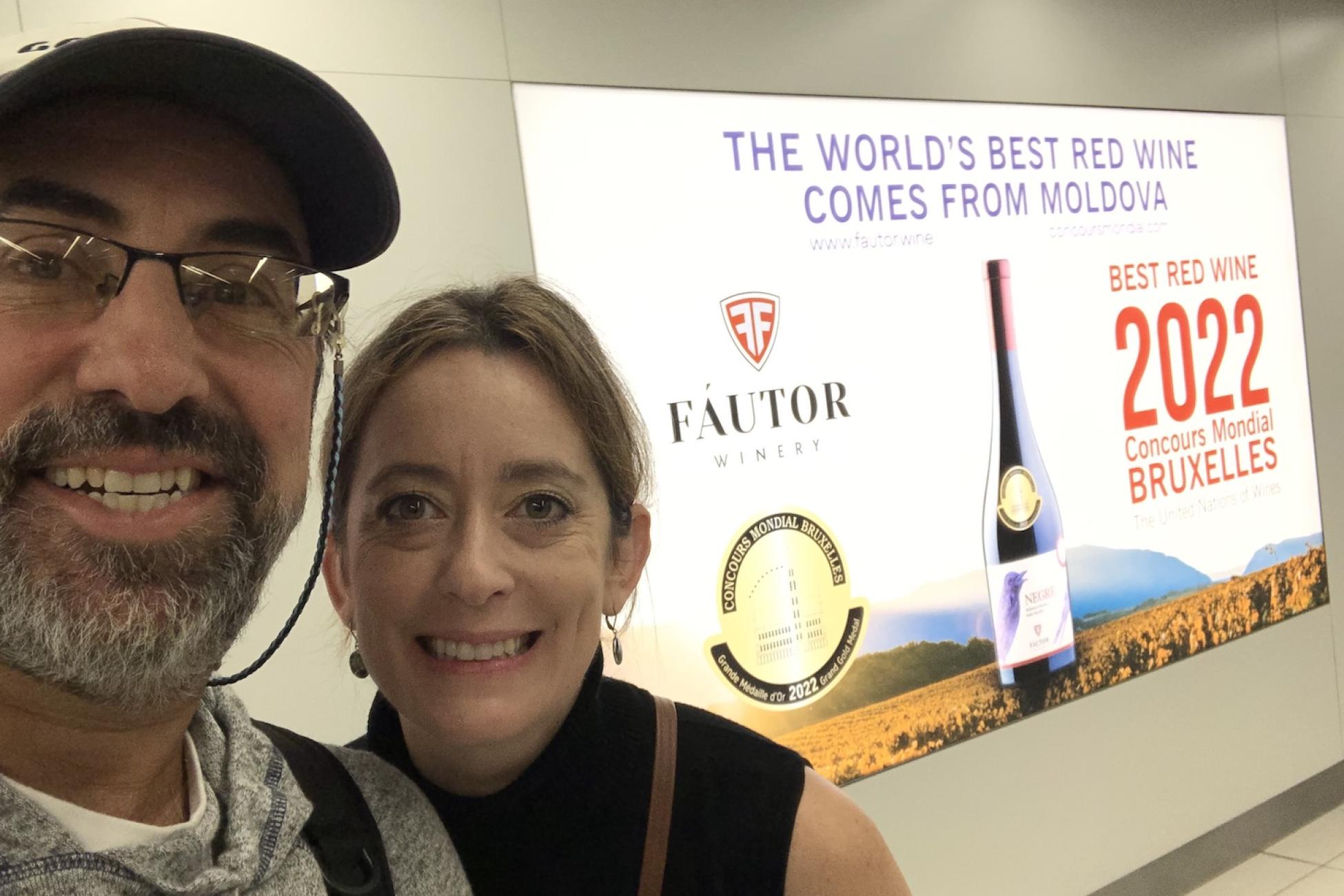Wine Days are officially behind us, but wine day is every day here.
The first weekend of October every year marks the official Wine Days and the festival is getting more international every year. People come from all over Europe and even further.
Wine Days are two days of camaraderie, celebration and consumption. Not necessarily more consumption than other days, but more varied consumption in that most people aren’t typically just splitting a bottle or two but trying all kinds of new wines.
How it works
The set-up is simple: Around 75 wine producers, big and small, staff little booths lining the main drag in the centre of town (Piata Marii Adunari Nationale) and festival-goers exchange little pre-paid tickets for 75mL pours.
Visitors to the festival can try wines they’ve never had before or return to their favourites. They get to meet and talk to the producers and it’s a chance to learn a little about each winery and in some cases plan on making a visit.
There’s also “wine school” and entertainment all day. It’s the typical harvest-type festival that has been conducted all over the world since pagan times—a chance to come together, commemorate all the hard work that goes into wine production and celebrate the fruits of their labor.
Wine culture in Moldova
Winemaking in Moldova goes back thousands of years. One of the leading local wine purveyors, Ivan Munteau of Wine.md, likes to tell anyone willing to listen that it’s 7,000 years of history to be exact. He points to a fossilized grape leaf as proof and I’m not arguing with him. There’s also evidence in Herodotus, I’ve been told.
But the most interesting evidence of the culture and legacy of winemaking can be found in my students, many of whom have been going home each weekend this fall to participate in the wine harvest.
One student in particular—still exhausted several days later after a weekend of picking grapes—told me that she and her husband picked 300kg for his grandparents; and that was just the whites.
I’ve visited their houses in the villages as well and seen the massive barrels of grapes in the first stages of fermentation. It seems like everybody’s grandma and grandpa makes wine in their own way—just a few hundred bottles of wine each fall, but enough for the family to drink year-round
On the other end of the spectrum, two of the largest local wineries—Milestii Mici and Cricova—are famous for storing their wine in abandoned limestone quarries. Milestii Mici boasts the world’s largest wine collection (according to the Guinness Book of World Records) at almost two million bottles and has 200km of underground tunnels, while Cricova has over one million bottles of wine stored in 120km of tunnels.
In Moldova wine makes itself
This is somewhat true. Once you pick and crush the grapes, the process of fermentation, and in turn the creation of ethanol, happens immediately and automatically.
During fermentation, yeast consumes the sugar and produces two things: ethanol and carbon dioxide. If you don’t want wine, you have to actually stop this process, usually with refrigeration. In its original incarnation, thousands of years ago, wine made itself.
But this is only half the story. Winemaking is truly “a minute to learn and a lifetime to master,” and there are many masters here in Moldova.
In Moldova’s recent history—let’s say post-WWII—almost all of the wine which was mass-produced was shipped to and consumed in Russia. It wasn’t a quality that was up to the standards of France, Italy or Germany.
But in 2006, Russia took the surprising move of banning Moldovan (and Georgian) wine, claiming it was unsanitary. The truth might be harder to parse, but these boycotts happened precisely when both countries were making moves toward the EU and democracy and away from Russia.
Moldova is making award-winning wine
Flash-forward to 2023 and the Moldovan wine industry is flourishing. Wineries are making great strides in the hospitality industry as well. Many have built guest houses, restaurants and experiential retreats.
Since 2015, wines made in Moldova have won over 5,000 medals at important international competitions. This includes, most notably, the Best Red Wine at the 2022 Concours Mondial Bruxelles.
But there are too many awards to list and the awards don’t tell the story, the wine does. Hopefully it will be coming to a store near you soon (it doesn’t hurt to ask for it) or you will be coming to Moldova for next year’s Wine Days, or any day, really—they are all wine days here.
Add this article to your reading list



